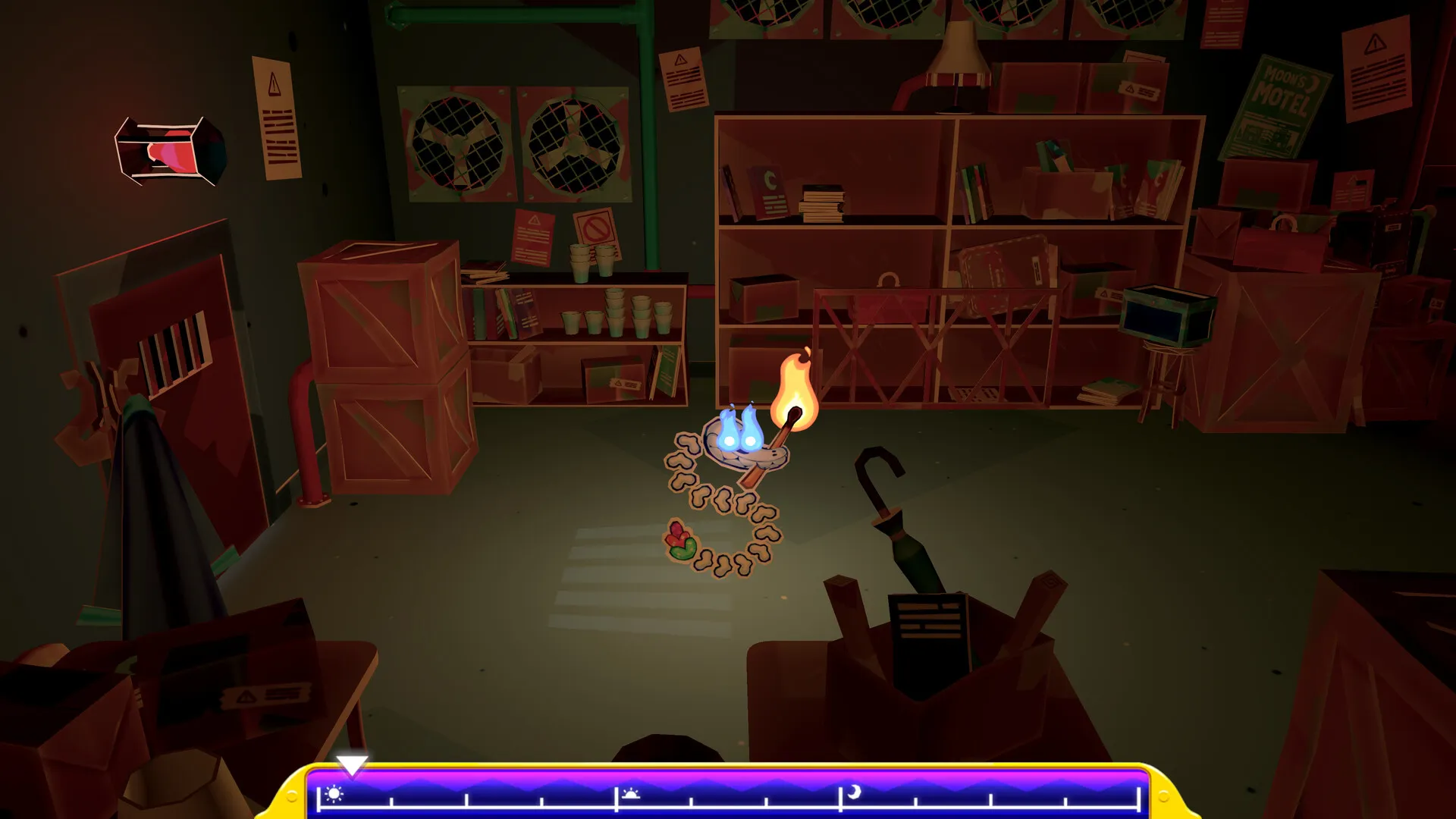Imagine, if you will, a recently deceased skeletal snake named Kulebra, finding himself in Limbo. This isn’t just any ethereal waiting room; it’s a place shaped by vibrant Latin American folklore, a sort of purgatory where souls linger, unable to move on.
Kulebra’s task, it seems, is to nudge these lost spirits toward their final rest, untangling the emotional knots that bind them. Kulebra and the Souls of Limbo is a puzzle adventure at its heart, an indie title that immediately radiates a sincere charm and a deep focus on emotional journeys.
You are not here for high-octane thrills, but for a gentler, more introspective experience, guiding Kulebra as he becomes an unexpected psychopomp in a world teeming with personality and poignant stories. The game sets out to wrap you in its unique atmosphere from the very first moment.
Limbo Crafted in Paper and Passion
The visual presentation of Kulebra and the Souls of Limbo is instantly arresting, calling to mind the delightful paper-craft dioramas of the Paper Mario series. This aesthetic choice is more than just a stylistic flourish; it imbues the entire game with a tangible, almost storybook quality.
Limbo is rendered in surprisingly vibrant colors, a nod to Latin American cultural expressions like Día de Muertos, where the afterlife is often depicted with joyous life. Kulebra himself, a serpent of bone with expressive, perhaps even slightly mournful, eyes, is wonderfully designed.
He moves with a slithering grace, and his ability to roll into objects sends satisfying little quivers through the paper-thin environment. The other denizens of this Limbo are a creative bunch – from quirky animal spirits to more abstract beings – each animated with a distinct personality.
This art style cleverly balances the inherent melancholy of a world populated by the departed with a persistent, underlying cheerfulness, ensuring the game feels welcoming even as it prepares to explore deeper themes.
The Heartstrings of the Hereafter
At its core, Kulebra and the Souls of Limbo is about stories and the emotional resonance they carry. Kulebra acts as a compassionate listener and a gentle catalyst, helping the inhabitants of Limbo confront and process their unresolved issues – themes of loss, lingering guilt, fractured family ties, and the difficult path to healing are common.
The game approaches these weighty subjects with a surprising deftness, often weaving in moments of humor and genuine warmth that prevent the narrative from becoming overly somber. You’ll meet a character, learn the intricacies of their earthly attachments and regrets, and then work to guide them toward acceptance.
A fascinating piece of lore is the 24-hour cycle that governs this Limbo: most souls lose their memories with each new day, caught in a loop, while Kulebra retains his, adding a layer to his quest to understand his own purpose.
The writing is frequently charming, shifting smoothly between lighthearted banter and more profound, heartfelt confessions. While the primary focus is on these individual vignettes, Kulebra’s own backstory slowly unspools, though sometimes the delivery of this overarching plot can feel a little condensed, especially during moments of significant exposition. The true strength lies in the connections formed with each spirit, their personal narratives creating a tapestry of relatable human experiences.
The Gentle Trials of Guiding Souls
The gameplay in Kulebra and the Souls of Limbo supports its narrative focus through accessible adventure game mechanics. Much of your time is spent exploring, engaging in conversations, and figuring out which items or actions will help a particular soul.
Puzzles, like mixing specific potions or manipulating statues, are generally quite logical and not overly taxing, ensuring the narrative flow is rarely impeded by frustration. A significant mechanic is the day-evening-night cycle.
Characters adhere to schedules, meaning you’ll need to learn their routines to catch them at the right time or place, reminiscent of systems in games like Majora’s Mask but without the accompanying high-stakes pressure. Thankfully, a well-implemented in-game notebook helps keep track of these details and your current objectives, although sometimes NPCs might spell out solutions a little too explicitly.
Kulebra’s primary actions involve slithering about and a useful roll that can dislodge items or currency. There’s no traditional combat; instead, “boss” encounters take the form of unique quiz shows.
These segments test your understanding of the characters you’ve helped, asking you to recall details of their lives and stories. It’s an inventive way to cap off each chapter, reinforcing the importance of having paid attention to their plights, and some even mix in other small interactive challenges. New mechanics are introduced gradually, making the game easy to get into.
A Cozy Crossing to Closure
What lingers after the journey through Limbo concludes is a distinct feeling of warmth and sincerity. Kulebra and the Souls of Limbo feels every bit the passion project it is, a game crafted with care and a clear affection for its characters and themes.
It succeeds beautifully as a “cozy game,” offering an experience that is emotionally engaging without being draining. The writing, the charming cast, and the evocative atmosphere are its strongest assets. The game truly shines in its quiet, introspective moments, allowing characters—and by extension, the player—space to process emotions against beautifully rendered backdrops.
While the core gameplay loop is relatively simple, and the path through the game can be quite direct, this rarely detracts from the power of its storytelling and artistic vision. It’s a journey about kindness, understanding, and the small acts that can lead to profound peace.
The Review
Kulebra and the Souls of Limbo
Kulebra and the Souls of Limbo is a beautifully crafted, heartfelt adventure that excels with its poignant storytelling and striking, culturally rich visuals. While its gameplay mechanics remain relatively simple, the emotional journey of guiding souls, coupled with its sincere charm and unique non-combat encounters, makes for a memorable and cozy experience. It's a commendable indie title that resonates deeply.
PROS
- Exceptional, heartfelt storytelling with well-handled emotional themes.
- Striking paper-craft art style with vibrant Latin American cultural influences.
- Charming and memorable character designs and interactions.
- Unique "quiz show" boss encounters that reinforce narrative engagement.
- Genuinely cozy and sincere atmosphere.
CONS
- Core gameplay mechanics and puzzles are often simple and straightforward.
- Occasional narrative pacing issues or overly explicit guidance.
- Limited environmental variety in some areas.
- Linear progression might reduce desire for immediate replays for some.


















































